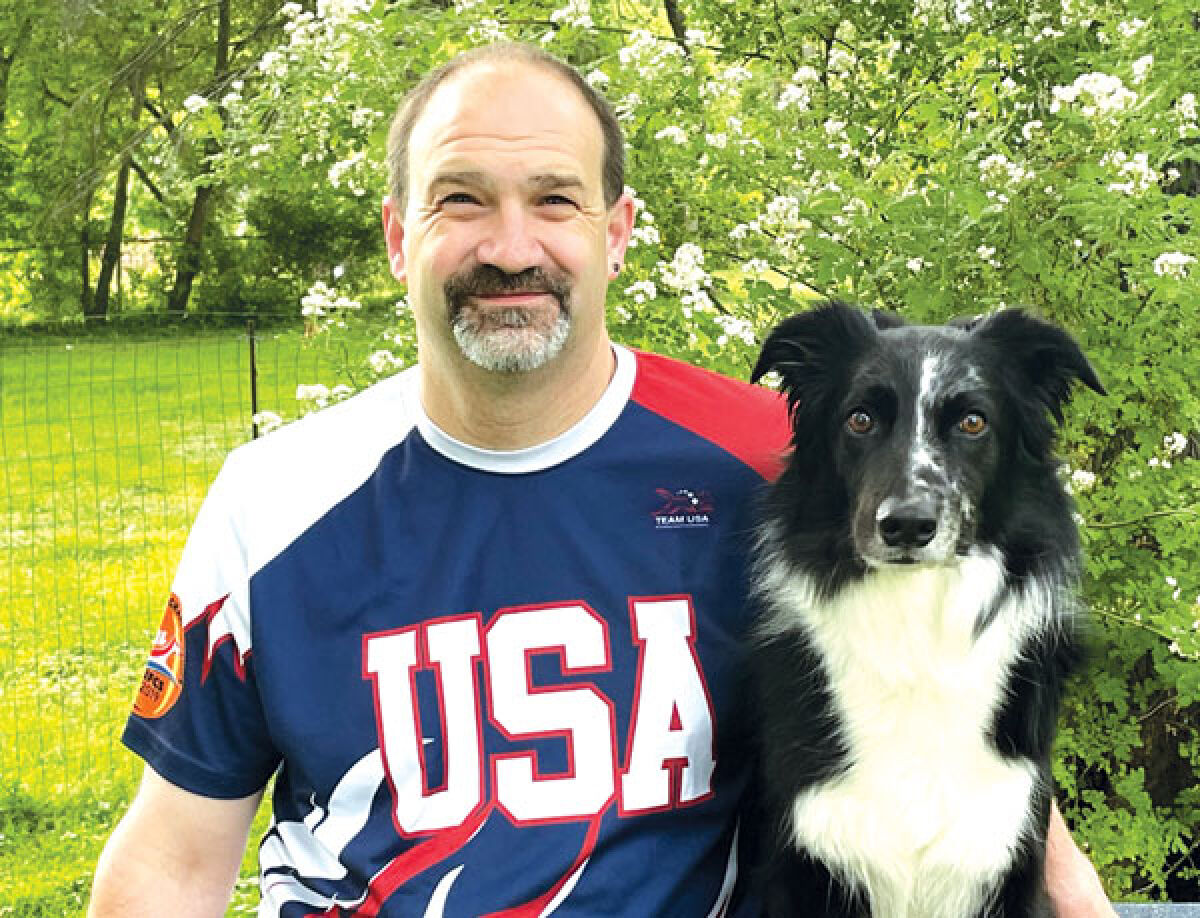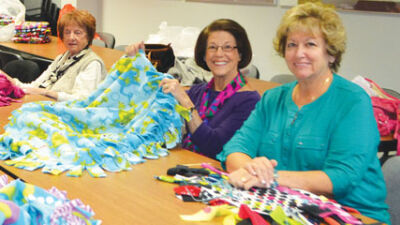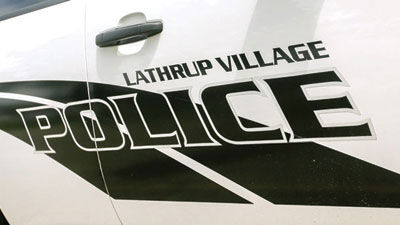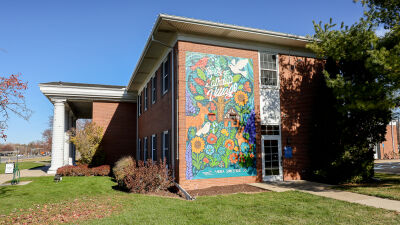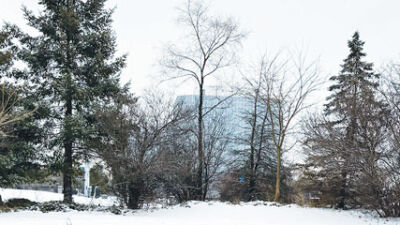SOUTHFIELD — Veterinary technician and Southfield resident of 20 years Jeremy Gerhard competed with Maverick, a Pembroke Welsh corgi owned by Sally Slade of Grand Blanc, Michigan, in their fourth international event together at the 2024 World Agility Championship, bringing home a silver medal.
The sport of dog agility is an active sport for both the dog and the handler. The sport involves the dog performing against the clock over hurdles and A-frames, through tunnels, hanging tires, weave poles and a seesaw. The objective of the sport is to score the fastest time with the least penalties. Obstacles for the course are set based on the height and experience of the dog competing.
The annual International Federation of Cynological Sports World Agility Championship showcased over 200 competitors from more than a dozen countries. The 2024 event was co-hosted by IFCS and Fédération Française des Activités du Chien de Sport April 30-May 4 in Bourgbarré, France. Maverick and Gerhard competed alongside 19 other Team USA competitors.
Gerhard and Slade had been competing either with or against each other for a number of years when Slade approached Gerhard with the idea of running with Maverick in 2017.
“She was getting ready to have a knee replacement, so I tried that,” he said. “It went OK. It didn’t go great the first time, but he was a young dog, and I’d never worked with him. Then, a couple weeks later, the only dog I had that I was competing with died very suddenly. I didn’t have a dog to run, so I just did local trials, mostly in Michigan, running Maverick and another dog that kind of came along with him.”
Gerhard explained that shortly after, he got an Australian shepherd puppy named Ruckus, but since puppies take around a year and a half or more to be ready to compete, he decided to keep working with Maverick. His bond with Maverick grew as the two continued to compete with one another.
“A little bit of a challenge was there’s some things that Sally trains differently with her dogs than I do with mine. So it was just getting used to each other. I had to learn some things that he knew differently. So I just had to learn to tell him the correct thing, and then he learned to do it correctly. He’s a very honest, hardworking dog. He wants to please. He will do anything for food.”
At the 2023 World Agility Championship, Maverick and Gerhard earned team gold and two individual silver medals.
Gerhard became interested in agility competitions in the 1980s when he was in high school, and his aunt let him use some of her dogs to train with.
“I ended up doing kennels for the owner of the place that we were doing the training at, and then I started working with some of her dogs. This was before agility actually really existed in this country. Then somewhere in the ’80s, I think it was ’88, agility kind of came up across the pond, if you will. It originated in England, and I saw that, and I just got hooked. For the most part, I haven’t looked back. And I don’t do much else dogwise at all. Agility is just more fun than everything else was.”
Slade was also a pioneer in American agility competitions and has been competing for around 40 years. She explained that a friend signed her up for a class, and she was hooked.
“She only stayed in agility for a year, but I got the bug,” she said.
She added that Maverick will turn 10 in September and has been competing in the American Kennel Club and the United States Dog Agility Association competitions since he was 15 weeks old.
Slade explained that Maverick has been No. 1 one in AKC since he was 3 years old.
“I’m not as big into USDAA as Jeremy is. Maverick is the No. 1 corgi in AKC, and to keep him No. 1, I have to show a lot of AKC, so I limit how much Jeremy can show him in the other venue just because I want to keep Maverick No. 1.”
She added that AKC tends to be more generous with running times than the USDAA.
Gerhard explained that he enjoys the handling aspect of agility competitions and the involvement that comes with running a dog. As a veterinary tech, he loves helping and caring for animals. As an agility competition handler, he appreciates the sport and fun of training. He added that popular breeds for agility include smaller breeds like corgis and papillons, as well as herding breeds, the Shetland sheepdogs and border collies.
In addition to competing, Gerhard serves as the secretary and trial chair for Canine Combustion Dog Agility Club, the oldest agility club in Michigan with around 22 members.
Gerhard joked that Maverick is a slug during practice but a star in front of a crowd.
Slade agreed.
“Now, at practice, Maverick jogs. When Jeremy first was going to try out for the very first time on the world team, I have a class that’s only a mile away from me, and I told Jeremy, ‘Come down for my class, and you can work with the class,’ because they never trained together,” she said. “So he came down to practice, and I had forgot to mention to Jeremy at that point that Maverick doesn’t run at practice. Of course, he gets into the atmosphere of a show. He just doesn’t put on any effort at a class. He came down and worked with him and said, ‘He’s not running.’ I said, ‘He never does at class.’ ‘This is pointless,’ Jeremy said. I said, ‘This is what I deal with on a regular basis.’ I never get a chance to work him at it like he does at a show because he gets into the crowd.”
For more information on the United States Dog Agility Association, visit www.usdaa.com.
To learn more about the American Kennel Club, visit www.akc.org.
For more information on the Canine Combustion Dog Agility Club, visit www.caninecombustion.com.
 Publication select ▼
Publication select ▼